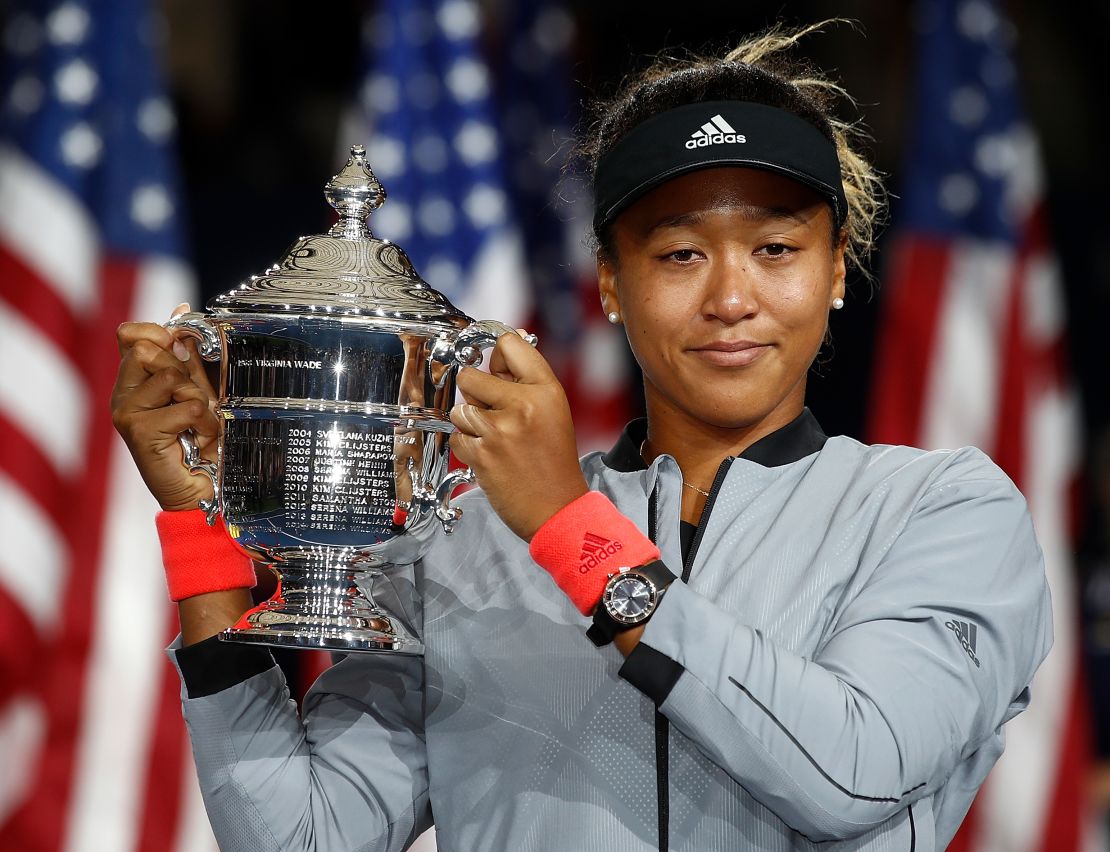Two-time grand slam champion Naomi Osaka could dominate the women’s game for years to come and win as many as 10 major titles, says Chinese great Li Na.
Osaka became the first Japanese player to clinch a singles slam when she won the US Open last year, and she followed it up by winning the Australian Open title in January.
At 21, the US-based Osaka has the tennis world at her feet and Li, the first Asian player to win a grand slam singles title, said she is capable of great things.
“When she was playing tennis in Melbourne, I said to Dennis [her husband], ‘She’s very good. I think if she wants, 10 grand slams, easy to win,’” Li, who won the French Open in 2011 and the 2014 Australian Open, told CNN Sport in an exclusive interview in Beijing.
‘Pokerface’
Only seven women have won 10 grand slam titles or more, but Li said Osaka has the combination of power and mental strength all champions possess.
“(It is) because she is pretty strong, and also, and for her age, she has a lot of experience on the court,” Li said after attending the Road to Wimbledon China event, the All England Lawn Tennis Club’s junior tournament, in Beijing. “She knows what she has to do, she is smart.”
The top-ranked Osaka showed her resilience during a tumultuous US Open final, which was overshadowed by a row between the umpire and her opponent Serena Williams, the 23-time grand slam champion.
In the end, Osaka defeated Williams, her idol growing up, 6-2 6-4.

Although Osaka had been in tears at the trophy ceremony as parts of the New York crowd booed the match officials, she followed up her maiden slam with a second major title, beating two-time Wimbledon winner Petra Kvitova of the Czech Republic in three close sets at the Australian Open in Melbourne to rise to the top of the women’s rankings.
Osaka’s strength of character on court has impressed Li.
“I like she has like a pokerface, doesn’t matter what happened on the court, she has same face,” Li said.
READ: Why Li Na wants the movie about her life to inspire women
‘Can she slide?’
So far Osaka has yet to win a tournament on the slower red clay, and hasn’t gone beyond the third round of Roland-Garros in Paris in three appearances.
When asked if she thought the top-seeded Osaka could win the French Open, Li said: “Does she know how to slide?”
Shortly after her Australian Open victory, Osaka parted ways with coach Sascha Bajin, the man who had guided her to two major titles and the No. 1 ranking.
Having lost some momentum in the months after Melbourne, with early exits in Dubai, Indian Wells and Miami, Osaka has had an injury-marred clay-court season in Europe this spring.
Guided by a new coach, Jermaine Jenkins, Osaka reached the quarterfinals at last month’s Porsche Tennis Grand Prix in Stuttgart, Germany, battling back from 5-1 down in the deciding set to beat Croatia’s Donna Vekic, before an abdominal injury forced her to withdraw from the Stuttgart semifinals.
Having spent the next week honing her clay-court skills at the academy of none other than 11-time French Open champion Rafael Nadal in Manacor, on the Spanish island of Mallorca, Osaka had a strong run in Madrid, where she reached the quarterfinals.
Then injury struck again in Rome the week after, as Osaka withdrew with a right-hand injury ahead of a highly anticipated quarterfinal clash with Madrid champion Kiki Bertens of the Netherlands.
“My hand is better now, it’s gets better every day,” Osaka told reporters at Roland-Garros.
Talking in Rome, the Japanese described her clay-court season as “rocky,” but she added in Paris that she has improved with every match.
“I feel I should be an all-court player,” she said Friday. “But it’s been a bit of a ride trying to figure out how to play better on clay all these years, but this year I’ve been playing well so I’m really excited to see what happens here.”
Big in Japan
Born in Osaka, Japan, to a Haitian father and Japanese mother, Osaka has lived in the US since the age of three and is now based in Florida. Her success on the court has turned her into a superstar in Japan, and one of the world’s most bankable female athletes.
Living in the US may be an advantage, Li said.
“Her luck is, she doesn’t live in Japan,” said Li, who was based in Germany for long stretches during her tennis career.
“She is in America, and I think this is good for her. If she lived in Japan, I think it would be 100 times tougher.”
